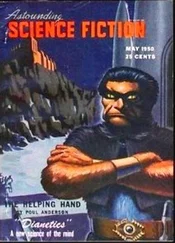Cale considered this thoughtfully, but said nothing.
“Do you want to leave tonight?” asked Vague Henri.
“No,” replied Cale, still thoughtful. “I’ll need time to steal as much stuff as I can.”
“It isn’t wise to wait. Think what might happen.”
“It’ll be all right. Besides, there’s no need for you two to leave. Kleist is right, you’ve landed on your feet here.”
“Hah!” said Vague Henri. “Once you’re gone, they’ll move on to us anyway.”
“They might, they might not. Perhaps Kleist is right-it’s something about me that makes people angry.”
“I’ll come with you,” said Vague Henri.
“Don’t.”
“I said I’ll come.”
There was a long silence, finally broken by Kleist. “Well, I’m not staying here on my own,” he said, and stormed off in a sulk.
“Perhaps,” said Cale, “we could leave before he gets back.”
“It makes sense for us to stick together.”
“I suppose so, but why does he have to whinge so much?”
“He just does. It’s his way. He’s OK.”
“Really?” asked Cale, as if only mildly curious.
“When do you want to leave?”
“A week-there’s a lot of stuff worth filching here. We need to stock up.”
“It’s too dangerous.”
“It’ll be fine.”
“I don’t agree.”
“Well, it’s my head and my arse, so it’s my decision.”
Vague Henri shrugged. “I suppose so.” He changed the conversation. “What did you think of the Mond-full of themselves, wouldn’t you say?”
“Pretty good, though.”
“Well,” said Vague Henri, smiling, “pretty, anyway.” After a pause he said, “Do you think Riba will be all right?”
“Why shouldn’t she be?”
It was clear that Vague Henri was truly worried. “The thing is,” he said, “she’s not like you and me. She couldn’t take a beating or anything. She wasn’t brought up to that.”
“She’ll be fine. Vipond has seen us all right, hasn’t he? What Kleist said is true-if it wasn’t for me, you’d be in clover here.” He didn’t in fact know what clover was, but he’d heard the saying a couple of times and liked the sound of it. “Riba knows how to get on with people. She’ll be all right.”
“Why can’t you get on with people, then?”
“I don’t know.”
“Just try and stay out the way, and if you can’t, stop looking like you want to slit their throats and feed them to the dogs.”
But the next day Vague Henri’s hope that things might blow over with Solomon Solomon and Conn Materazzi was disappointed. Solomon Solomon found another excuse to continue the hefty beating of the day before, but this time in the middle of the field so that everyone could have a good look and be encouraged to find an excuse to do likewise. Conn Materazzi, however, more subtle than his fighting master and unwilling to be seen merely to be copying him, continued kicking Cale on the slightest pretense but putting hardly any force into it. The young man had a talent for humiliation, treating Cale as if he were an amusing burden that was his lot to deal with as kindly as possible. With his long and flexible legs and after a lifetime of practice, he could hit Cale on the back of the leg, his arse or give him a gentle clip around the ear, as if using his hands on someone like Cale was to take him too seriously. After four days of this, it was Conn’s effect on Cale that began to worry Vague Henri more than the rough treatment handed out by Solomon Solomon. Cale was used to a brutality more extreme than anything Solomon Solomon could come up with. But mockery, being made to look ridiculous, was outside their experience. Henri began to worry that Cale might be provoked into striking back.
“He seems calmer than ever to me,” said Kleist as Vague Henri sat beside him worrying.
“As quiet as a haunted house until its demon be up.” They both laughed at this often-repeated line from the Redeemers.
“Just two more days.”
“Let’s get him to leave tomorrow.”
“All right.”
Conn Materazzi continued to develop his role as the tolerant master of a ridiculous fool with ever greater malice-and was much admired by his friends for doing so. In between the hefty beatings handed out by Solomon Solomon, he would ruffle Cale’s hair over some pretended mistake, as if he were an old family pet, incontinent yet much pitied. There were endless provoking gentle slaps to the back of his head, light taps on the buttocks with the flat of his sword blade. And all the time Cale became quieter and quieter. And Conn would see this-see that the hefty beatings seemed to leave no impression, but that, however carefully disguised, his mockery was slowly penetrating through this very hard soul. Conn Materazzi was a monster, but no fool.
The Materazzi were famous for two things: the first, their supreme skill in the martial arts and a reckless courage to go with it; the second, the extraordinary beauty of the Materazzi women, matched by their extraordinary coldness. Indeed, it was said that it was impossible to understand the Materazzi’s willingness to die in battle until you had met one of their wives. The Materazzi individually and collectively were a terrifying war machine. But if you really did encounter one of their wives, you would certainly be met with a condescension, pride and dismissal such as you would never have experienced before. But you would also have been thunderstruck by their beauty-and, like the Materazzi men, been willing to endure almost anything for a smile or a patronizing kiss. Although the Materazzi held nearly a third of the known world in the solid grip of their military, economic and political power, the conquered could always console themselves with the thought that, however great their ascendancy, the Materazzi were slaves to their women.
As the beatings and the harassment of Cale continued, all three of the former acolytes were spending as much time thieving as possible. This was not particularly difficult or dangerous-the Materazzi had what, to the boys, was a bizarre attitude toward their possessions. They seemed ready to throw things away almost as soon as they had bought them. As acolytes forbidden possessions of any sort, this baffled them. At first they would steal objects they thought would be useful-a clasp knife, a sharpener, then money left casually lying about in their bosses’ bedrooms, often in astonishingly large amounts. Then it became easier to ask the boss if he wanted something tidied up or put elsewhere, because often they were told just to get rid of it. Inside four days they had stolen and been “given” more stuff than they could use, or even knew how to use: knives, swords, a light hunting bow with a nick easily repaired by Kleist, a small field kettle, bowls, spoons, rope, twine, preserved foods from the kitchens and a fair amount of money, of which there would be more when they sucked their bosses’ rooms dry just before they left. This was all hidden carefully in an assortment of nooks and crannies, but there was little chance of discovery because no one missed any of it. The realization that you could live the life of Riley in this place just off the things that other people didn’t want made Kleist and Vague Henri deeply sad that they had to leave. But Vague Henri saw with every mocking taunt by Conn Materazzi, and every humiliating poke and prod, that Cale became more and more quiet. Conn would flick Cale’s ears and pull his nose as if he were a mischievous small boy.
On the afternoon of the fifth day, Cale was on the search to steal something useful in a part of the keep where, as an apprentice, he was forbidden to go. “Forbidden” in Memphis meant something different from “forbidden” in the Sanctuary-there an infraction might mean, say, forty strokes with a metal-studded leather belt from which you might easily bleed to death. Here it meant something you shouldn’t do that might mean a vaguely unpleasant punishment or something you could easily talk your way out of. In this instance, if caught, Cale would apologetically explain that he was lost.
Читать дальше











